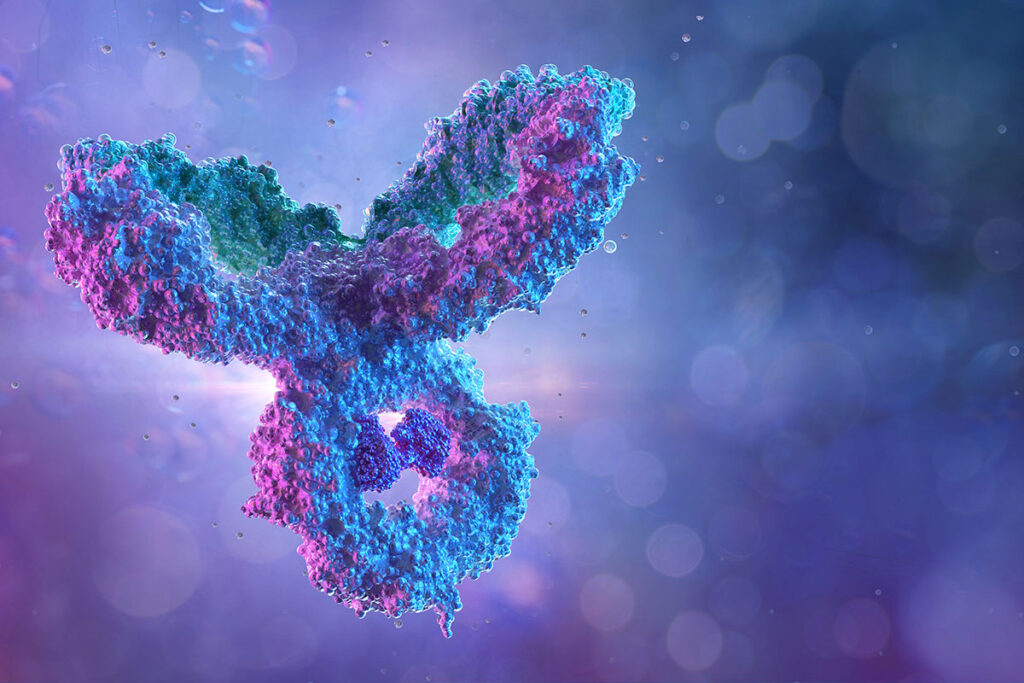As SARS-CoV-2 continues to evolve in ways that outpace current treatments, researchers at Columbia University have developed a monoclonal antibody that, in lab tests, neutralized all known variants of the virus—including the highly resistant strains now dominant worldwide. The findings, published in a paper titled “Optimizing a human monoclonal antibody for better neutralization of SARS-CoV-2,” reflect early-stage progress toward better protection for immunocompromised individuals who cannot rely on COVID-19 vaccines alone.
The study was led by teams at the Aaron Diamond AIDS Research Center and the Wu Center for Pandemic Research at Columbia University Vagelos College of Physicians and Surgeons.
“It has been a daunting challenge, as well as a frustrating endeavor, to develop therapeutic or prophylactic mAbs to keep up with the rapid pace of SARS-CoV-2 evolution,” the researchers wrote. “Yet the reality is that millions of individuals worldwide are sufficiently immunocompromised that they cannot benefit from the protection conferred by COVID-19 vaccines. Such persons need effective prophylaxis with passively administered virus-neutralizing mAbs.”
Health Security and Public Impact
Although COVID-19 is no longer classified as a public health emergency, the virus remains a threat—particularly for the immunocompromised, who may not respond adequately to vaccination. For these individuals, monoclonal antibodies are an essential tool to prevent infection. However, the virus has evolved quickly, rendering all previously authorized antibody therapies ineffective.
Even pemivibart (VYD222), cleared in 2024 for use as a preventive treatment, is now far less effective against the most recent variants. The Columbia team’s work highlights how rapid viral evolution continues to challenge medical countermeasures—and underscores the importance of developing antibody therapies that can keep pace.
Sustaining this capacity is critical not just for individual protection but also for broader national and global health security. Without effective countermeasures for vulnerable populations, the virus has more opportunities to spread, evolve, and trigger future waves.
A New Antibody Candidate with Broad Neutralizing Power
The team identified a human monoclonal antibody, referred to as 19-77, that could neutralize many—but not all—SARS-CoV-2 variants. Using structural modeling and targeted mutation, the researchers modified a single amino acid in the antibody’s structure to improve its flexibility and binding performance. This led to several optimized versions of the antibody that showed consistent neutralizing activity against all 36 tested variants, including XEC and LP.8.1—two highly evasive strains currently circulating.
These optimized antibodies also showed no immediate red flags in terms of manufacturability, making them strong candidates for future clinical development.
A Different Strategy for Antibody Optimization
Rather than focusing on the usual regions of the antibody that directly bind to the virus, the researchers made subtle changes in a nearby structural area—improving the antibody’s conformational flexibility. This flexibility allows the antibody to adapt to changes in the virus’s spike protein, a key advantage given how quickly the virus mutates.
This method could represent a broader opportunity for developing antibodies against other fast-evolving viruses, including HIV, influenza, and hepatitis C.
Potential and Limitations
While promising, the study does acknowledge that even these optimized antibodies are not invincible. In lab experiments, the virus was still able to mutate around one of the modified versions, albeit at a cost to its fitness. This underscores the importance of antibody combinations—pairing two or more antibodies that target different parts of the virus to reduce the chance of escape.
The Columbia team suggests that their optimized antibody could eventually be paired with other broadly neutralizing candidates in a therapeutic cocktail to extend its effectiveness and reduce resistance risk.
The research was supported by funding from the Bill & Melinda Gates Foundation and donations from Andrew and Peggy Cherng.
Wang Q, Guo Y, Casner RG, et al. Optimizing a human monoclonal antibody for better neutralization of SARS-CoV-2. Nature Communications. 4 July 2025.


